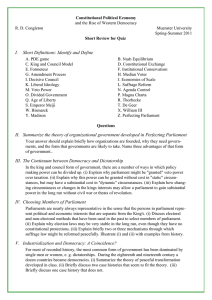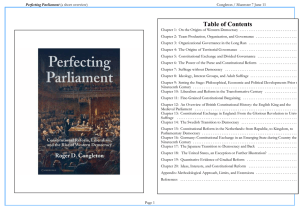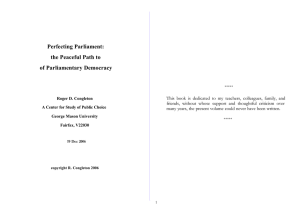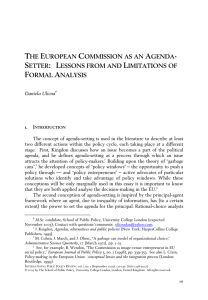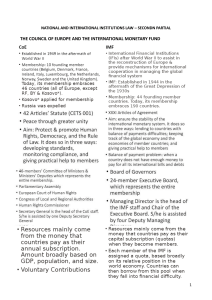Jean Monnet Module on Agenda-Setting in the European Union
advertisement
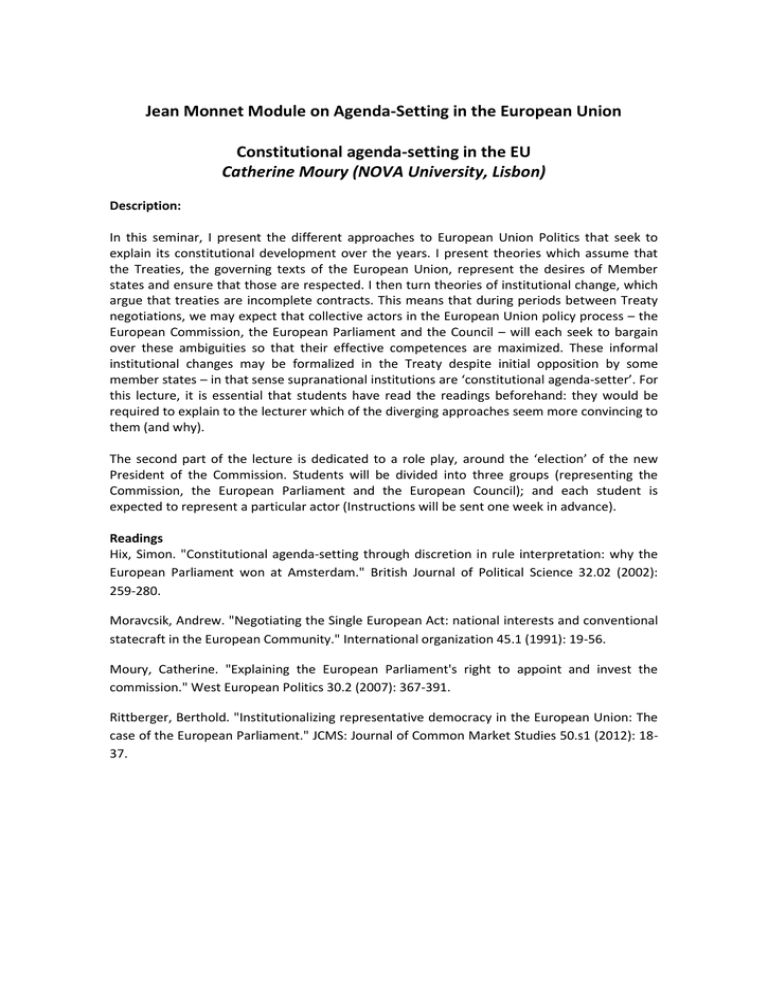
Jean Monnet Module on Agenda-Setting in the European Union Constitutional agenda-setting in the EU Catherine Moury (NOVA University, Lisbon) Description: In this seminar, I present the different approaches to European Union Politics that seek to explain its constitutional development over the years. I present theories which assume that the Treaties, the governing texts of the European Union, represent the desires of Member states and ensure that those are respected. I then turn theories of institutional change, which argue that treaties are incomplete contracts. This means that during periods between Treaty negotiations, we may expect that collective actors in the European Union policy process – the European Commission, the European Parliament and the Council – will each seek to bargain over these ambiguities so that their effective competences are maximized. These informal institutional changes may be formalized in the Treaty despite initial opposition by some member states – in that sense supranational institutions are ‘constitutional agenda-setter’. For this lecture, it is essential that students have read the readings beforehand: they would be required to explain to the lecturer which of the diverging approaches seem more convincing to them (and why). The second part of the lecture is dedicated to a role play, around the ‘election’ of the new President of the Commission. Students will be divided into three groups (representing the Commission, the European Parliament and the European Council); and each student is expected to represent a particular actor (Instructions will be sent one week in advance). Readings Hix, Simon. "Constitutional agenda-setting through discretion in rule interpretation: why the European Parliament won at Amsterdam." British Journal of Political Science 32.02 (2002): 259-280. Moravcsik, Andrew. "Negotiating the Single European Act: national interests and conventional statecraft in the European Community." International organization 45.1 (1991): 19-56. Moury, Catherine. "Explaining the European Parliament's right to appoint and invest the commission." West European Politics 30.2 (2007): 367-391. Rittberger, Berthold. "Institutionalizing representative democracy in the European Union: The case of the European Parliament." JCMS: Journal of Common Market Studies 50.s1 (2012): 1837.

